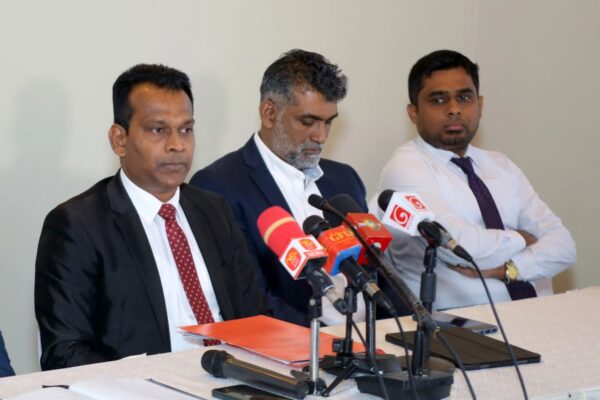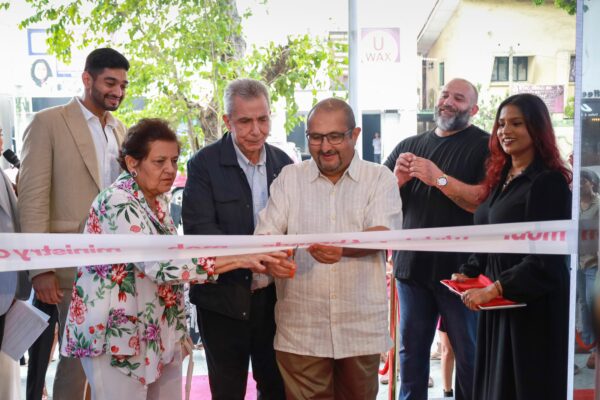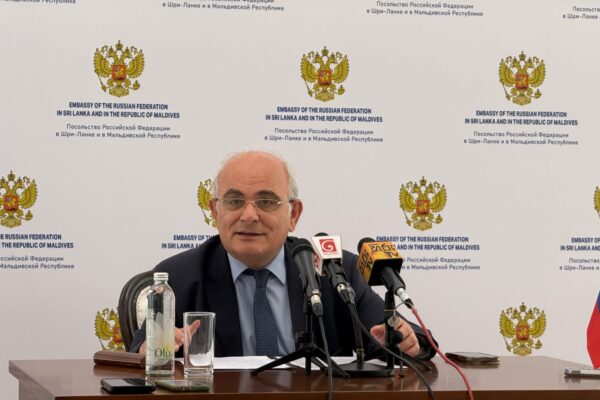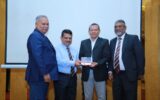

“
Khalid bin Hamoud Alkahtani
COLOMBO
Every year, June 5th marks World Environment Day, a global occasion to reflect on the reality of our planet and raise awareness of the importance of environmental conservation and addressing environmental challenges that affect the lives of current and future generations.
On this occasion, I reaffirm the Kingdom of Saudi Arabia’s unwavering commitment to protecting the environment and achieving sustainable development, within the framework of an ambitious national vision based on the principles of environmental justice and the pillars of Saudi Vision 2030, which places the environment at the heart of comprehensive development transformation. The Kingdom has paid great attention to protecting natural resources and combating climate change and desertification, recognizing the seriousness of growing environmental challenges and the need to address them within interconnected national, regional, and international frameworks.
The Saudi Green Initiative represents an advanced model in this context, aiming to plant more than ten billion trees within the Kingdom, increase green spaces, and reduce carbon emissions by 278 million tons annually by 2030. This initiative complements the Middle East Green Initiative, which seeks to plant 50 billion trees across the region in collaboration with more than 30 countries, making it one of the largest environmental initiatives in the world in terms of scope and impact. These initiatives are consistent with the Kingdom’s commitment to achieving net-zero carbon emissions by 2060, in accordance with the circular carbon economy approach adopted by the G20 during the Kingdom’s 2020 presidency. This approach relies on mitigation, reuse, recycling, and removal technologies.
In this context, the Kingdom has continued to implement several strategic renewable energy projects, such as the Sakaka Solar Energy Project and the Dumat Al Jandal Wind Energy Project, and launched future eco-friendly city projects such as NEOM and The Line, which represent a global model for sustainable cities based on clean energy and smart mobility. The Kingdom is also moving forward towards achieving a target of producing 50% of its electricity from renewable sources by 2030, reflecting a true commitment to achieving an integrated environmental and economic transformation. These efforts have contributed to a 7% reduction in per capita energy consumption over the past three years and increased the efficiency of water and energy consumption across various sectors.
On the regulatory level, the Kingdom has restructured the environment sector by establishing the National Center for Environmental Compliance Control, the National Center for Vegetation Cover Development, and the National Center of Meteorology. It has also approved the National Environment Strategy, which aims to protect ecosystems, improve air quality, enhance waste management efficiency, and increase the percentage of protected areas to more than 30% of the Kingdom’s area. Municipal waste recycling in some major cities, such as Riyadh, has exceeded 35%, while the area rehabilitated has reached more than 20,000 hectares since 2021.
The Kingdom’s efforts are not limited to the national level, but extend to supporting brotherly and friendly countries, particularly in Africa and Asia, by financing desertification control projects, building capacity in water management, and providing technical grants for environmental innovation. It also supports climate adaptation projects funded through the Green Climate Fund and the Global Environment Facility. The Kingdom has also actively participated in several international agreements, such as the United Nations Framework Convention on Climate Change, the Paris Agreement, the Convention on Biological Diversity, and the Montreal Protocol on Substances that Deplete the Ozone Layer, which the Kingdom has successfully phased out 100% of, in compliance with international standards and best environmental practices.
The Kingdom of Saudi Arabia also played a leading and pivotal role in launching the Global Water Organization, headquartered in Riyadh, as part of its growing commitment to addressing water challenges regionally and internationally, and in line with the Kingdom’s Vision 2030 to protect natural resources and promote sustainability.
Based on its leadership position and responsibility as a member of the G20, the Kingdom continues to strengthen its efforts to build a comprehensive green economy based on innovation, technology, and knowledge, and seeks to create effective partnerships in the fields of clean energy and environmental protection. The Public Investment Fund and the National Development Fund have allocated approximately $1.5 billion to support environmental projects, contributing to new investment opportunities and achieving sustainable returns on both the economic and environmental levels.
The environmental achievements achieved so far in the Kingdom represent the beginning of a long journey of commitment and continuous development, driven by the vision of a wise leadership that believes that protecting the environment is not an option, but an existential necessity. On World Environment Day, the Kingdom emphasizes the importance of international solidarity, the exchange of expertise, and collective action to preserve the planet and secure a more sustainable future for future generations.( The writer is the Saudi ambassador in Colombo )

















